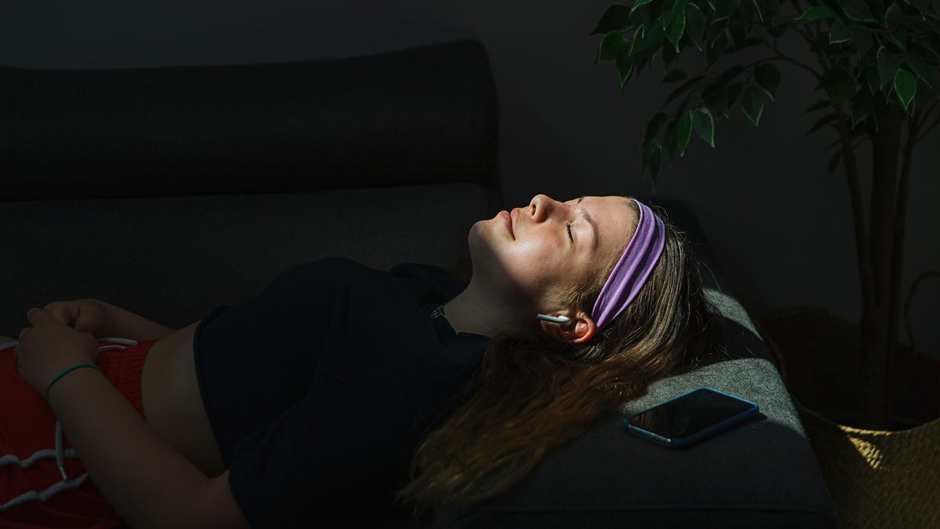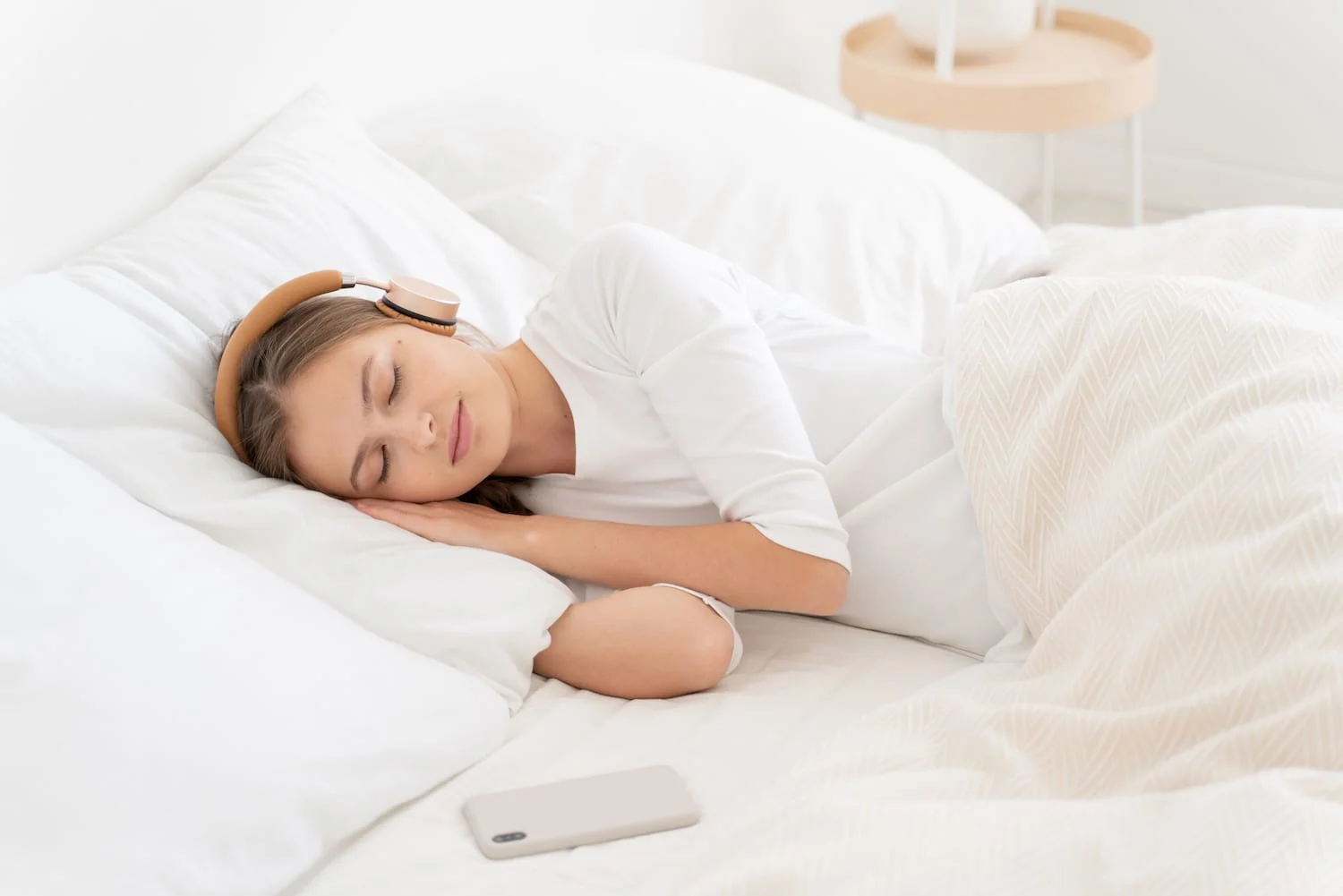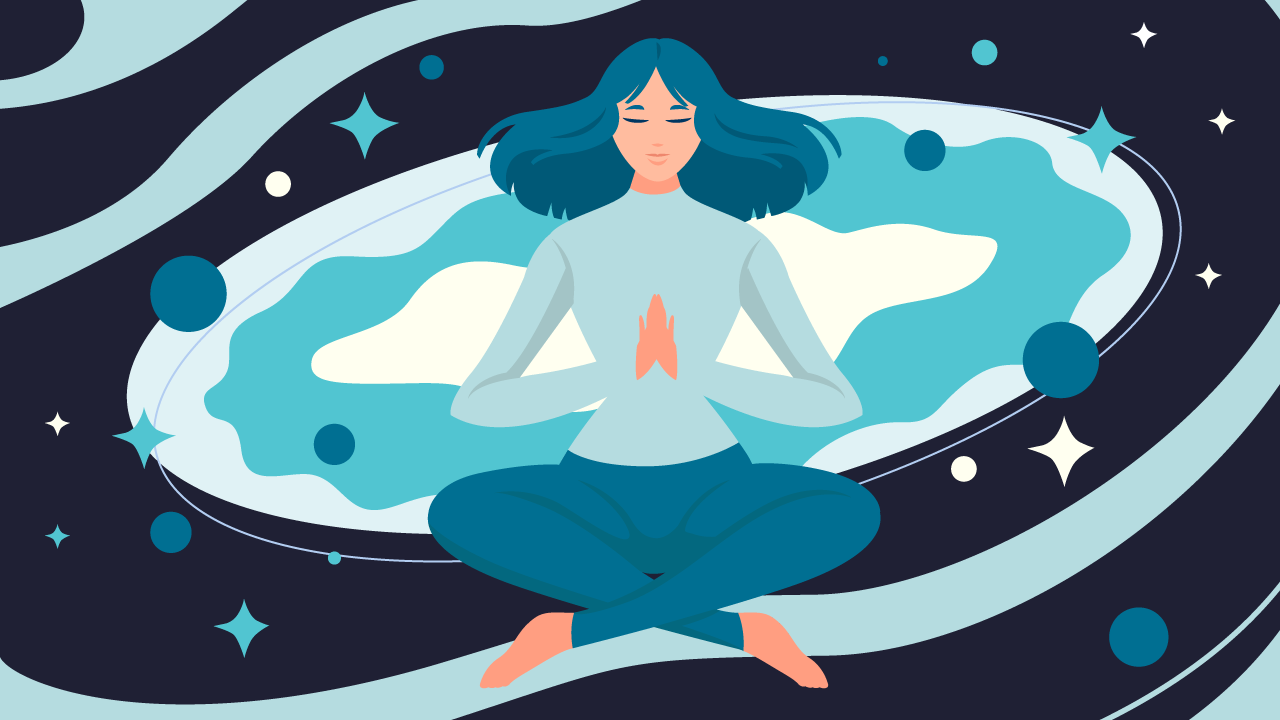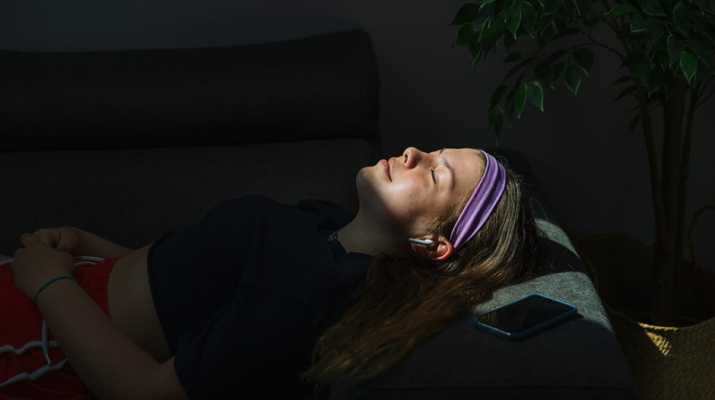The Connection between Sleep and Music
Music is an ideal solution for several reasons. It can make us happy, reduce our stress levels, and help us feel merry and festive. Few people are aware, though, that music can also facilitate better sleep habits, speed up the process of falling asleep, and help us wake up feeling more rested.

By making one feel at peace and comfortable, music can help an individual fall asleep. It’s simpler than ever to use music’s power wherever he/she is thanks to streaming applications and portable speakers. Given the availability of music and its potential to improve sleep, now might be a good time to start incorporating it into the bedtime routine.
Whom does Music help?

Fortunately, lullabies before night can be helpful for people of all ages. People of all ages claim that listening to relaxing music improves their quality of sleep. Both young people and old men and women can benefit from music. Instead, music promotes sleep in schizophrenic patients.
Adults who listened to music for 45 minutes before bedtime in one trial reported higher sleep quality starting on the first night. Even more encouraging is the fact that study participants reported getting better sleep as they added more music to their night-time routine, suggesting that this advantage may have a cumulative effect.
Moreover, listening to music helps speed up the process of falling asleep. For ten nights in a row, participants in a study of women with insomnia symptoms listened to an album they had chosen themselves. Participants found that falling asleep took between 27 and 69 minutes before adding music to their night-time routine, but only 6 – 13 minutes after doing so. Playing music before bed can increase sleep efficiency in addition to promoting rapid sleep onset and boosting sleep quality, the more time an individual is spending in bed resting. Greater sleep consistency and fewer night-time awakenings are the results of improved sleep efficiency.
What does the Study have to say?

According to studies, listening to relaxing music before bed increases the quality of sleep in older persons, and relaxing music performs significantly better at enhancing sleep than rhythmic music. According to the study, relaxing music may enhance sleep by reducing blood pressure, and slowing breathing and heart rate. One’s tension and anxiety levels are subsequently reduced as a result. Researchers also discovered that listening to music for longer than four weeks is more effective than listening to music for a shorter period of time at enhancing sleep quality.
How does Music impact Sleep? How are they connected?

Music helps to release a hormone, called dopamine, during pleasurable activities like eating, exercising, and having sex. This release can improve moods before bed and deal with discomfort, which is another frequent contributor to sleep problems. Music has the power to both physically and psychologically relieve both short-term and long-term physical discomfort.
Music listening can also aid in relaxing, by comforting the (ANS) autonomic nervous system. A person’s body’s natural system for regulating automatic or unconscious activities, such as those in the heart, lungs, and digestive system, is called the autonomic nervous system. By comforting autonomic nervous system components, which lead to lower breathing, lower blood pressure, and a lower heart rate, music enhances sleep.
Most insomniac people relate their bedrooms to restless evenings and dissatisfaction. This can be balanced with music, which prevents unsettling or nervous thoughts and stimulates the mental and physical calm needed for sleep. Night-time noise, whether it comes from traffic, airplanes, or noisy neighbors, can make it harder to fall asleep and is associated with a number of harmful health effects, including cardiovascular disease. These outside noises can be muffled by music, which will improve sleep quality.
A few fascinating connections between Sleep and Music are:
-
Dreams that contain music are usually emotionally positive
People who sang more, played an instrument more, or listened to music more intently during the day had a higher chance of having a music dream (i.e., listening closely and giving the music their full attention). Also, there was a strong association between the music they listened to on a regular basis and the music they heard in their dreams. These results, according to the researchers, are consistent with the idea that a person’s waking-life ideas and concerns are primarily carried over into their dreams.

-
Yoga music during sleep time improves Heart Rate Variability (HRV)

Yoga music is quiet, calming music that is intended to be used during yoga or meditation. There were more than 140 healthy participants in the study. On different evenings, they chose to go to bed with no music, pop music with a steady beat, or yoga music. Before, during, and after the music or stillness, their heart rate variability (HRV) was recorded in each case. The heart rate variability (HRV) index measures how well a person’s heart rate adjusts to shifting workloads throughout the day. Low HRV is linked to an approximately 40% higher chance of experiencing one’s first heart attack, stroke, or other cardiovascular events in individuals without established heart disease. Yoga music caused an increase in HRV, a positive change. During pop music, however, it reduced, and during quiet, it remained unchanged.
-
People have different choices in the music type they sleep to

Many professionals advise listening to predictable, mellow music without lyrics before sleeping. But as these findings demonstrate, when left to their own devices, people don’t always make that decision. Maybe that shouldn’t be a surprise. Any type of music one likes could potentially be a relaxing stress reliever or a component of a calming night-time routine.
Making Music a Key Component of Sleep Hygiene
A beneficial component of good sleep hygiene might be music. Here are some suggestions for incorporating music into a night-time routine that will help you fall asleep.
- Avoid Disturbing Songs: Everybody has a song that makes them feel a lot. Try listening to neutral or uplifting music instead of those because it can be better for your sleep.
- Find Entertaining Songs: If a readymade playlist isn’t helping, try combining a playlist of music preferred. While many people find comfort in slower tunes, others could find relaxation in playful music. Try multiple things and discover what works the best.
- Develop a Habit: For sleep, routine is excellent. Establish night-time rituals that provide the body enough time to relax while incorporating music in a peaceful and regular manner.
- Stay Cautious with those Headphones: If the volume on headphones and earbuds is excessively loud while sleeping, it could harm the ear canal. Additionally, sleeping with earbuds in increases the risk of ear infections and earwax buildup. Instead, try to position a small speaker or stereo near the bed. Prefer speakers that avoid emitting bright lights, which may impair sleep, and choose a volume that is relaxing and not disturbing.
Last Lines:
Music can be a helpful strategy to deal with the problem of falling asleep. One can easily add it to their sleep hygiene since it is readily available. The findings of this recent research should come as welcome news to anyone who struggles to wind down for bed, battle insomnia, or access emotionally uplifting dreams.

